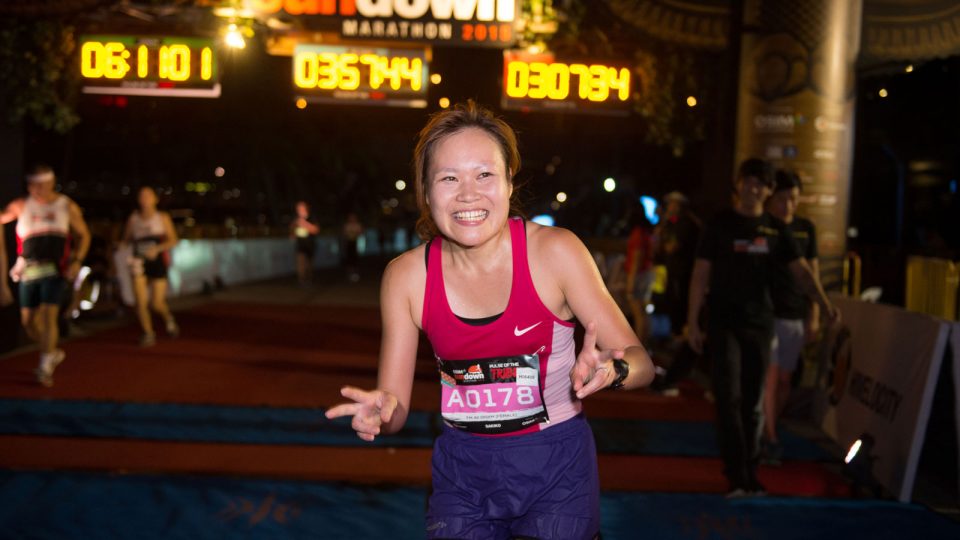When you’re one of Japan’s most notable female runners, relocating to Singapore can require adjustments and time to settle in, but Sakiko Matsumoto is no ordinary woman. Japanese by birth, she moved to Shanghai at age 13 and was raised there, so you might say that her most recent move to Singapore last year was just the latest adventure she’s enjoying.
This 28-year-old world class runner did more than settle down in Singapore with her husband. She began competing immediately, and despite holding down two part-time jobs, she ran 12 competitive races in the past year. We’re not sure how she did it, but we’re extremely impressed by the performance of the newest addition to Singapore’s running community!
RS: You’ve been a runner since Secondary 2 and became interested in the sport at an early age. Were you on your school’s track and field team?
Sakiko: Yes, I joined the track and field team when I was in secondary 2 in Shanghai. It came very naturally to me as a child since my father is a runner.
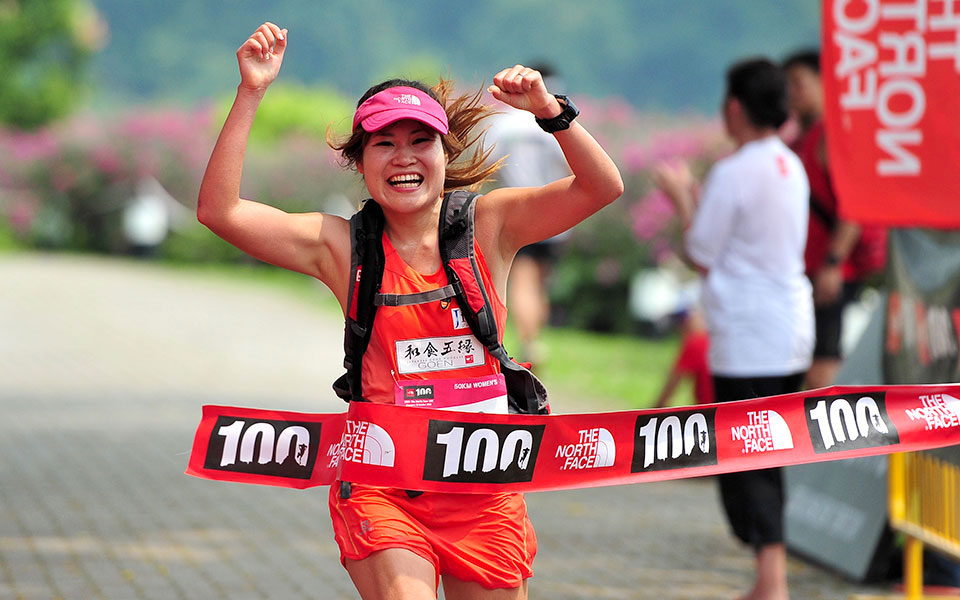
RS: You lived in Shanghai for more than a decade. How does the Shanghai running scene compare to Singapore’s?
Sakiko: The most notable differences are air and temperature between the two geographic locations. Shanghai has serious air pollution problems (pm2.5), so we wore masks when we ran in school. Because I became used to it, haze hasn’t been a problem for me since moving to Singapore. And while Singapore’s temperatures are always high, Shanghai has more seasons, which means autumn and winter months are great for running.
RS: How do you usually train? Do you have a coach?
Sakiko: I train for running at Singapore Shufflers and I swim and bike at Team Next Stage. I do not have a coach at the moment, but I learn so much from my team members, they’re like having a coach.
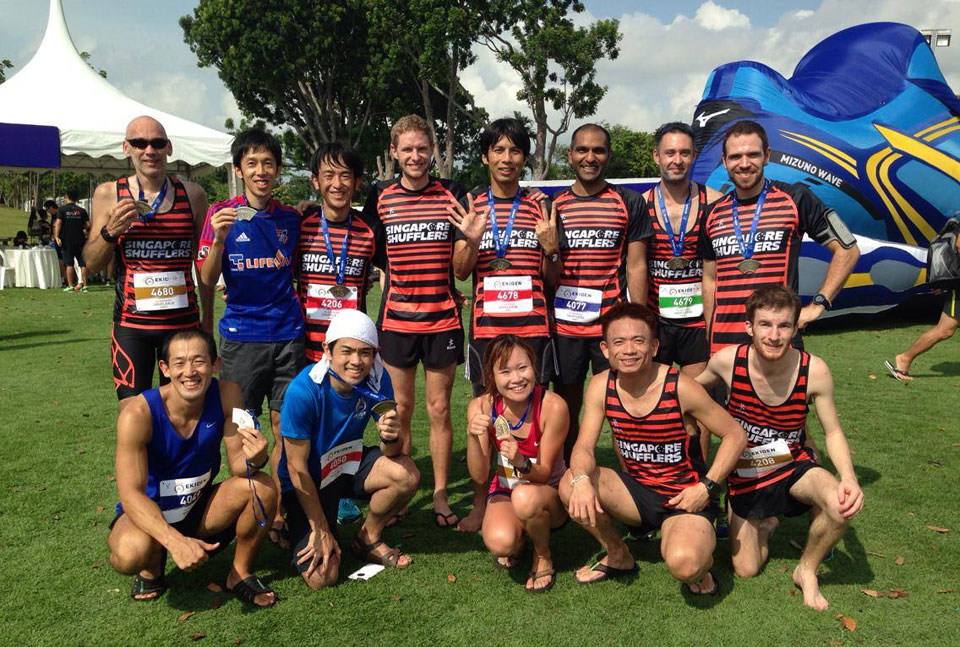
RS: Like many multi-tasking women in Singapore, you work the equivalent of a full-time job while being a competitive runner. How do you balance training, work, family and a social life?
Sakiko: I train early in the morning – before going to one of my part-time jobs. Since my other job is in the evening and I want to use my time effectively, I also train between my morning and evening jobs – a 5km run or a 500m swim, for example. My husband is a runner, too and my biggest supporter, so I always encourage him when he runs, as well.
RS: What was your most memorable race and why was it memorable?
Sakiko: In January 2015, I participated in the Osaka International Women’s Marathon, Japan’s most important women’s elite race. Since I’m Japanese, obviously this was a special opportunity for me and I had the good fortune to compete against formidable professional runners. I had to adjust my usual conditioning routine to train for this race, but the outcome was worth the adjustment: I finished with a 2:56:46 personal best!
RS: What running accomplishment has given you the most satisfaction and why?
Sakiko: That’s easy: my PB at the Osaka Marathon, because I was able to see by my performance how much I have improved as a runner and how much progress I have made.
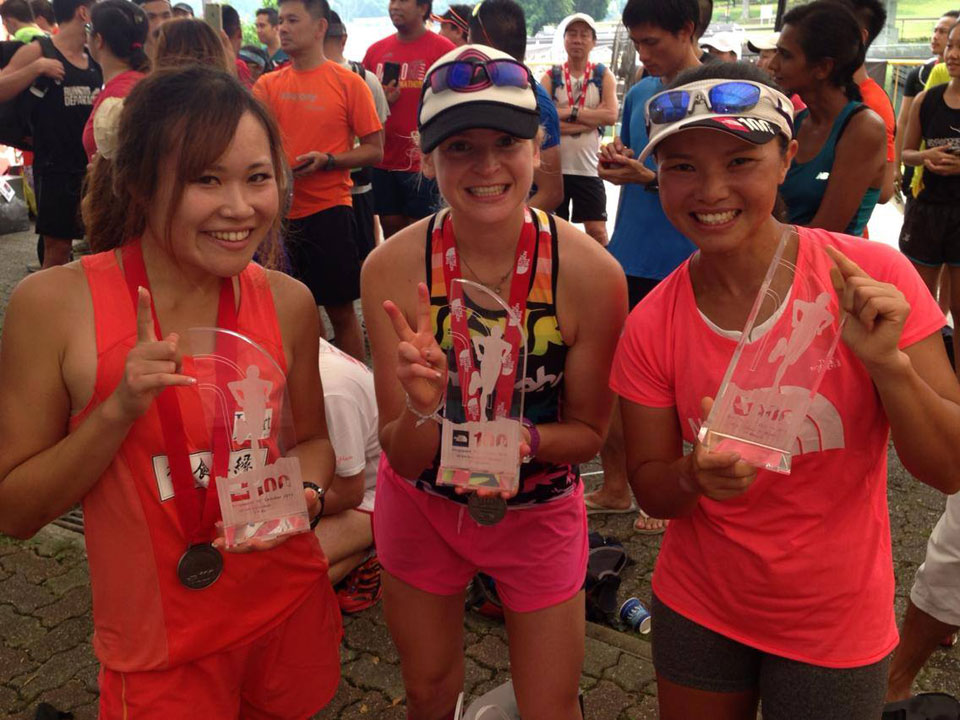
RS: In your opinion, what is the most important value a competitive runner should possess?
Sakiko: I think it’s important to have patience so one can make steady progress towards a goal or in pursuit of an objective. When I make a good effort to achieve something and remain patient, I usually succeed.
RS: Besides training and hard work, what one quality contributes to your success as a competitive runner?
Sakiko: I think it’s my ability to put forth a really great effort in combination with continuing my training at a high level.
RS: You have been called one of Japan’s top runners and proven that by your performance and success on the international marathon circuit. What should elite Singapore runners do to match top Japanese runners?
Sakiko: In Japan, employers support elite runners – and also elite competitors in other sports – and every athlete is assigned an experienced coach. I think these two factors make the biggest difference between the way Japanese and Singapore runners perform. In Japan, kids get an early start because running and athletics are encouraged in all schools. Everyone looks forward to the annual Hakone Ekiden Race!
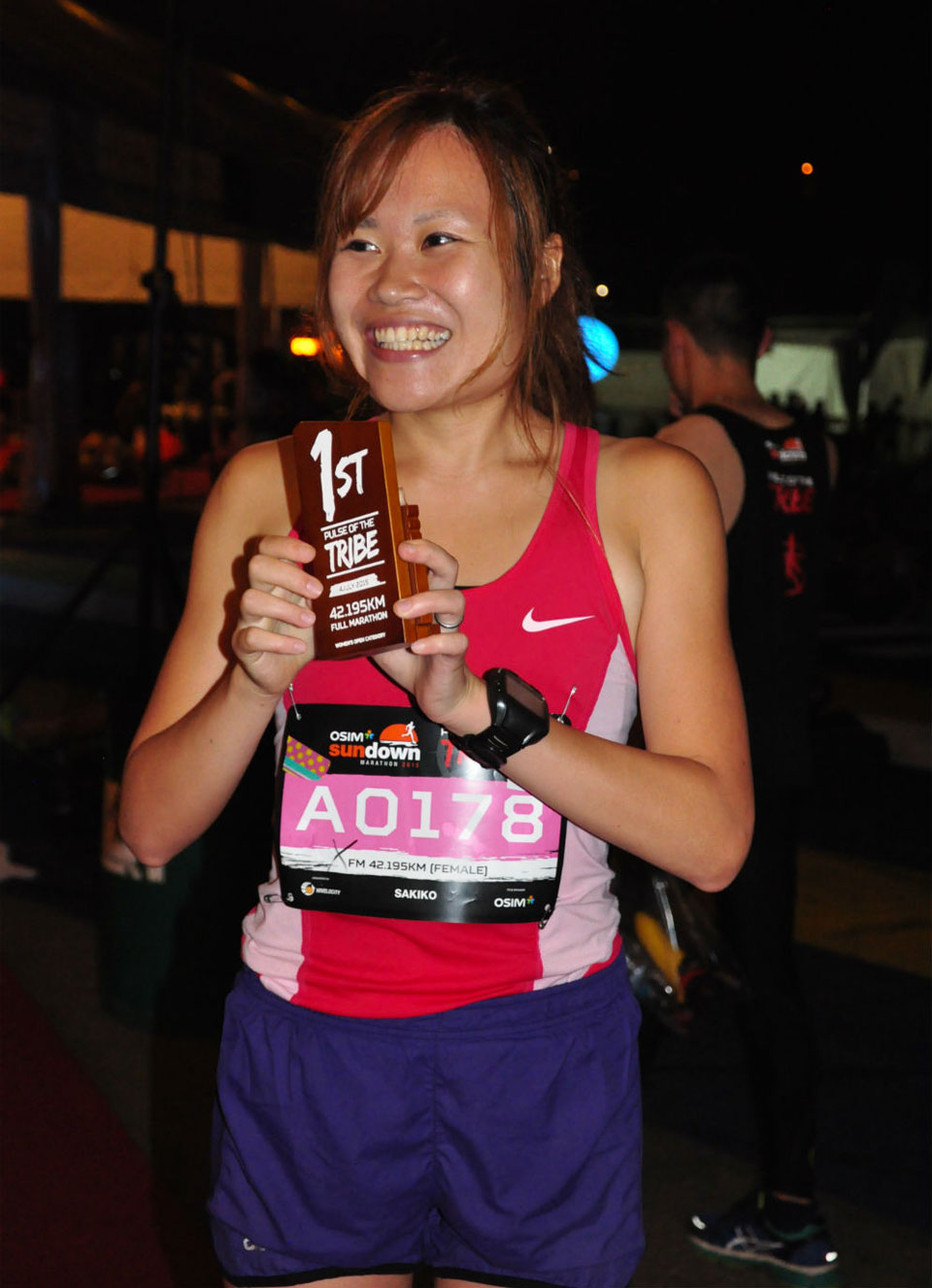
RS: Have you heard the rumour that Japanese runners train too hard? What do you think?
Sakiko: [laughs] Of course Japanese runners train hard! But I think it’s necessary if one is to become and remain a top competitive runner.
RS: What is your goal or your objective in 2016?
Sakiko: I set a few goals following my latest race, which was a half ironman triathlon in Danang on 8 May. I want to establish more good friendships with Singapore athletes in 2016. I’m not necessarily focused on results as much as I am on making more friends so I can fully enjoy my running experiences here!
RS: When can we next see you in action and where will you run; events or just your usual training venues?
Sakiko: Regardless of the race, I would like to run in many of the Singapore places I have yet to discover, and I want to make an effort to run with others. I not only love meeting and training with people who love the sport as much as I do, but I always cheer them on, even if I’m competing against them!!
Do you think you could move to a new homeland and pull off 12 marathons within your first year?


